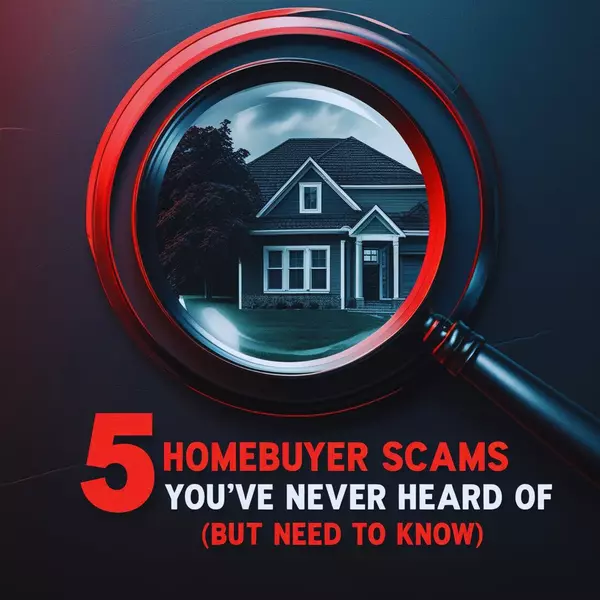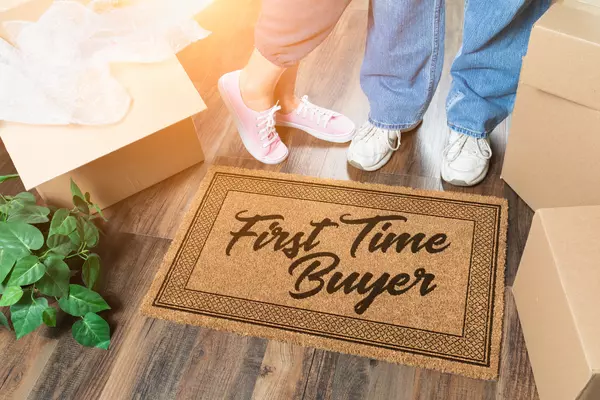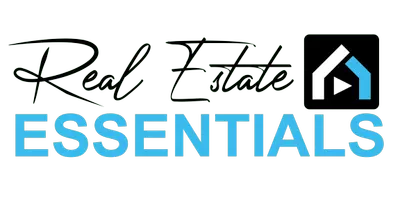5 Homebuyer Scams You’ve Never Heard Of (But Need to Know)

🕵️♂️ 5 Homebuyer Scams You’ve Never Heard Of (But Need to Know)
Buying a home should be exciting, like unlocking the door to your future, not unlocking the door to a financial nightmare. Unfortunately, scammers have gotten clever, and while you’ve probably heard of the classic traps, there are a few sneaky schemes out there that can fool even the savviest buyer.
Let’s pull back the curtain on five lesser known homebuyer scam and, more importantly, how you can dodge them like a pro.
1. The Fake Title Company Switcheroo
How it works: Just days before closing, you get an email from what looks like your title company, asking you to wire funds to a “new account.” You panic, follow instructions, and poof the money vanishes.
Why it’s dangerous: Scammers use email spoofing to make their requests look legit, and because wire transfers can’t be reversed, you’re out thousands.
✅ How to protect yourself: Always confirm wire instructions directly with your title officer by phone, not email. And only call the number listed on official documents, not in the suspicious email.
2. Phantom Rental Listings
How it works: Scammers steal photos from a real property listing and post them as a “for rent” home. They lure in hopeful renters or buyers with great prices, collect deposits, and disappear into the digital night.
Why it’s dangerous: Buyers sometimes confuse a rental scam with a real sale and waste valuable time or worse, lose money.
✅ How to protect yourself: Verify the property on the MLS or through a licensed real estate agent. If a deal seems too good to be true, it probably is.
3. The “We’ll Handle the Paperwork” Scam
How it works: A so-called “consultant” offers to help you buy a home by handling paperwork, negotiating with the seller, or even promising “special financing.” The catch? They aren’t licensed, and their contracts often hide sky-high fees.
Why it’s dangerous: Without proper oversight, you’re signing documents that can put your ownership or finances at risk.
✅ How to protect yourself: Only work with licensed agents, lenders, and attorneys. You can verify licenses through your state’s real estate commission.
4. Bogus Home Inspections
How it works: A seller “recommends” their buddy as an inspector. You pay, get a glowing report, and move forward only to discover major issues like faulty wiring or foundation cracks.
Why it’s dangerous: You end up footing the bill for problems that should’ve been caught before you closed.
✅ How to protect yourself: Always hire your own independent, certified inspector. And yes attend the inspection yourself!
5. Equity Skimming Schemes
How it works: A scammer targets desperate or inexperienced buyers, offering “creative financing.” They convince you to sign the deed over to them temporarily, promising to make mortgage payments while you “rent-to-own.” Instead, they pocket your payments and let the home fall into foreclosure.
Why it’s dangerous: You lose your equity, your money, and sometimes your chance to buy.
✅ How to protect yourself: Never sign over your deed to anyone without legal advice. Legit financing options don’t require giving up ownership.
🛡️ Final Thoughts: Protect Yourself Before You Sign
The truth is, real estate transactions involve big money which makes them a prime target for scammers. But with the right knowledge (and a trusted professional on your side), you can spot the red flags before they cost you your dream home.
✨ Want to feel confident navigating the process? Download my FREE Safe Buyer’s Guide a checklist that walks you through each step to protect yourself from scams.
Buying a home should be a celebration, not a cautionary tale. Let’s keep it that way. 🏡
Categories
Recent Posts










GET MORE INFORMATION


